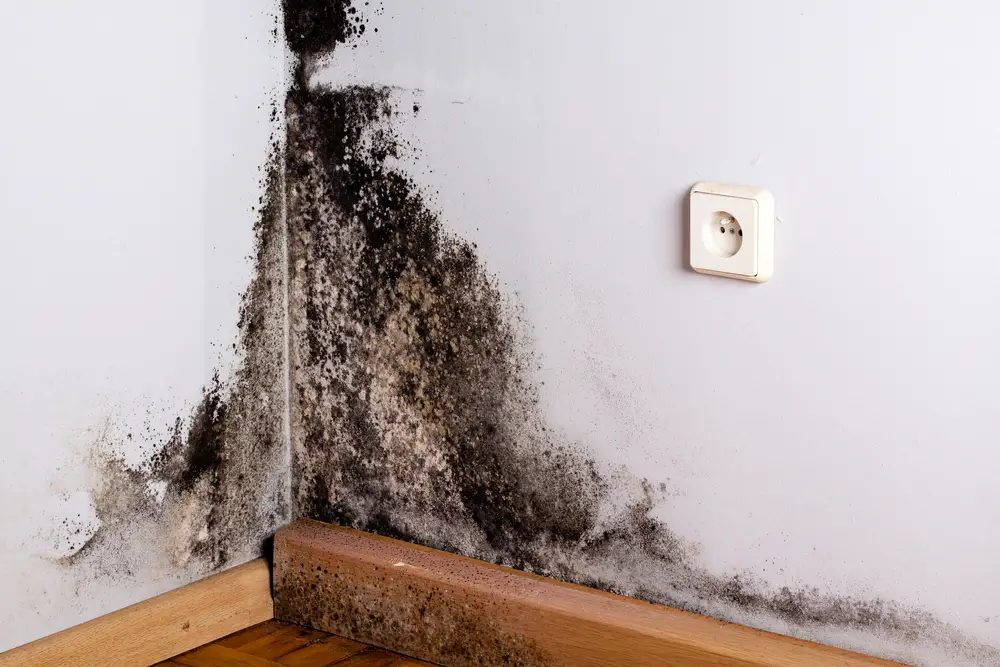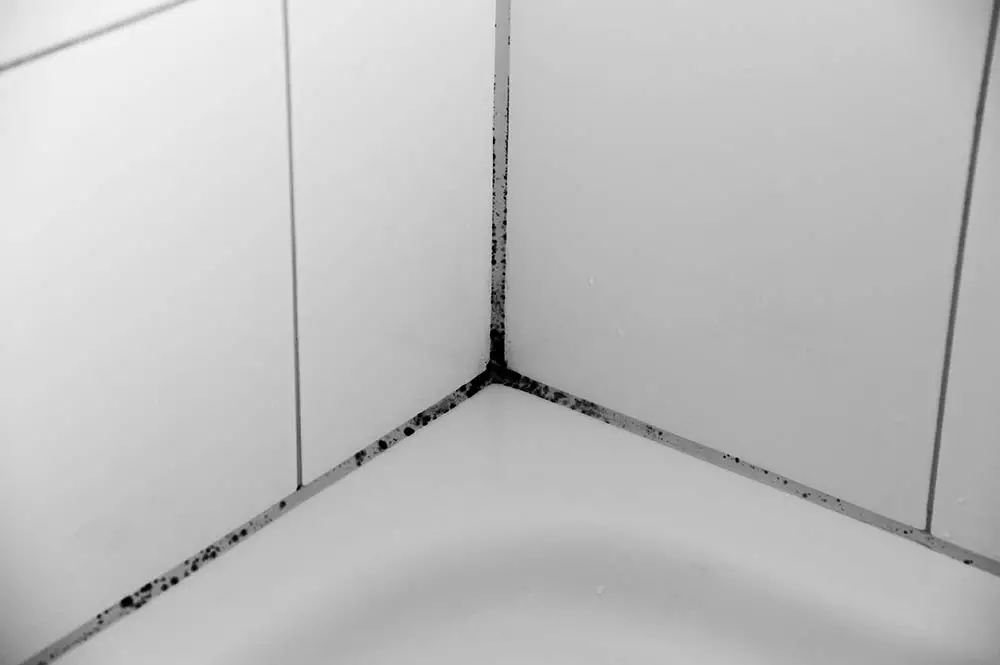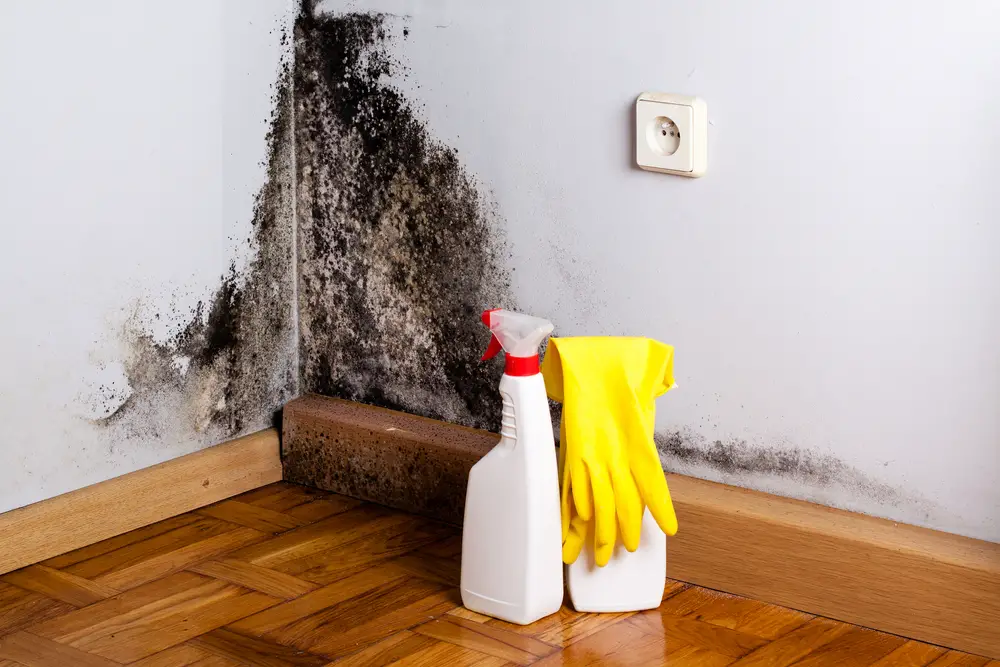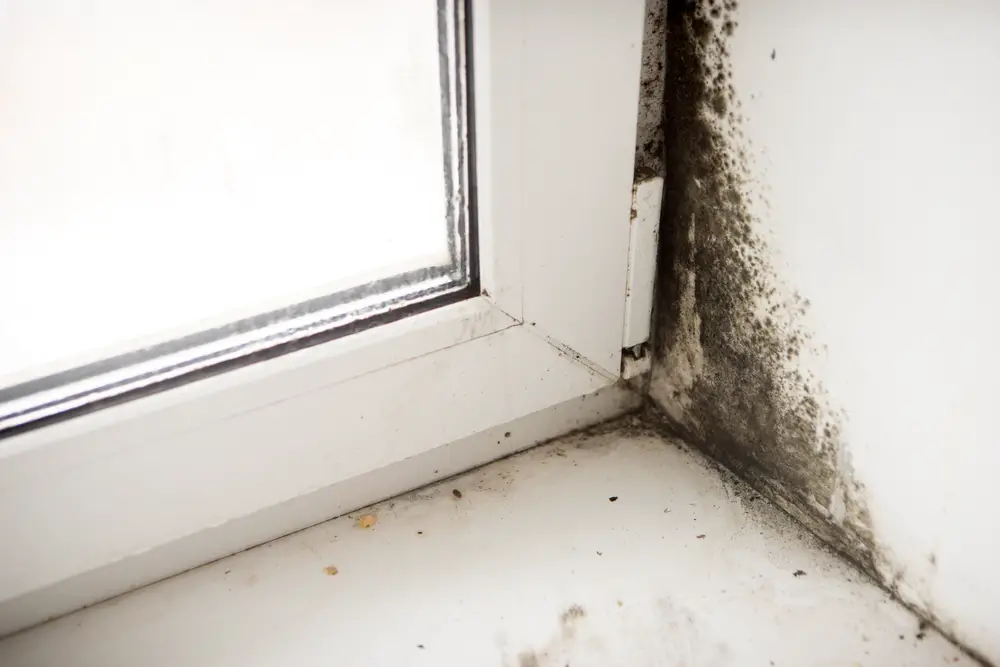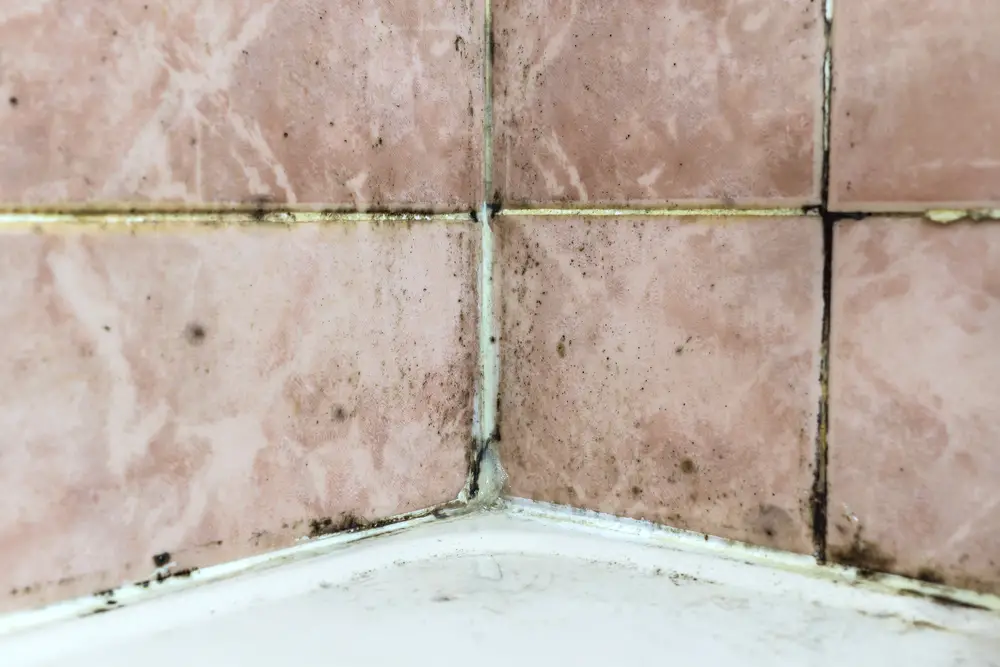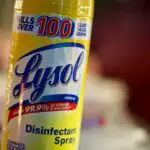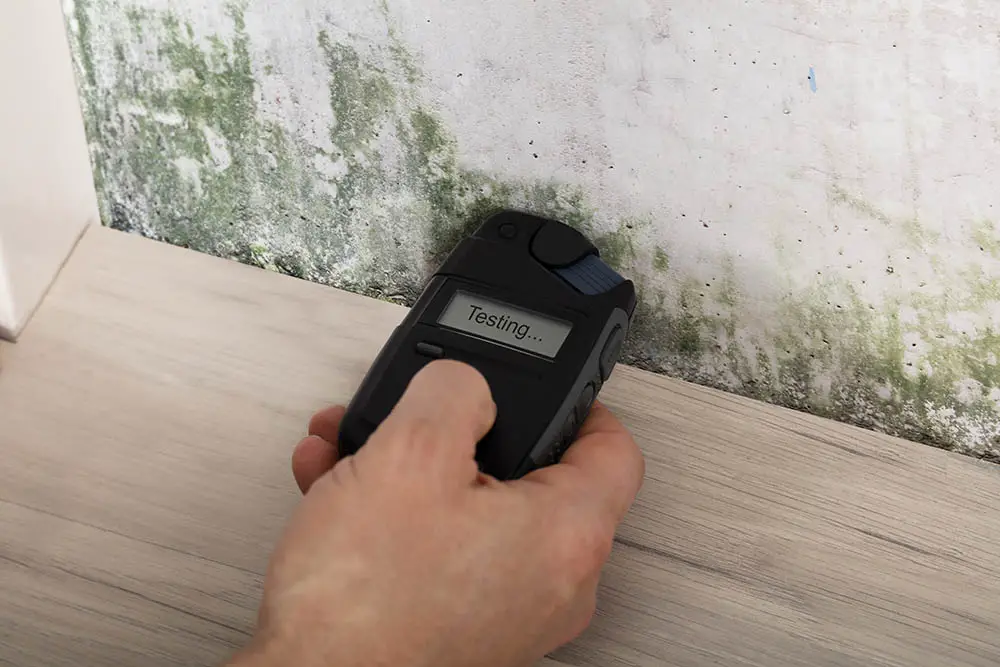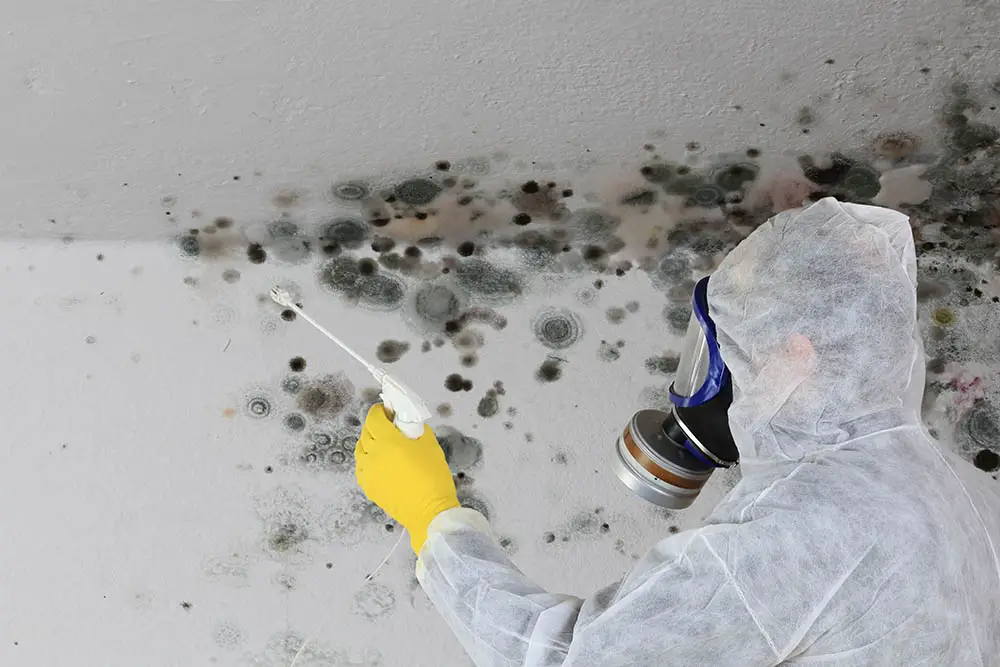We’ve all heard horror stories about black mold and the devastating impact that it can have on human health, especially if it’s present in your home or apartment. But are those tales true? Is there any truth to the urban myths that have been passed around like candy on a school trip? Unfortunately, they are, and the truth is, that black mold can seriously make you sick.
If that’s the case, is having black mold in an apartment illegal? Let’s discuss!
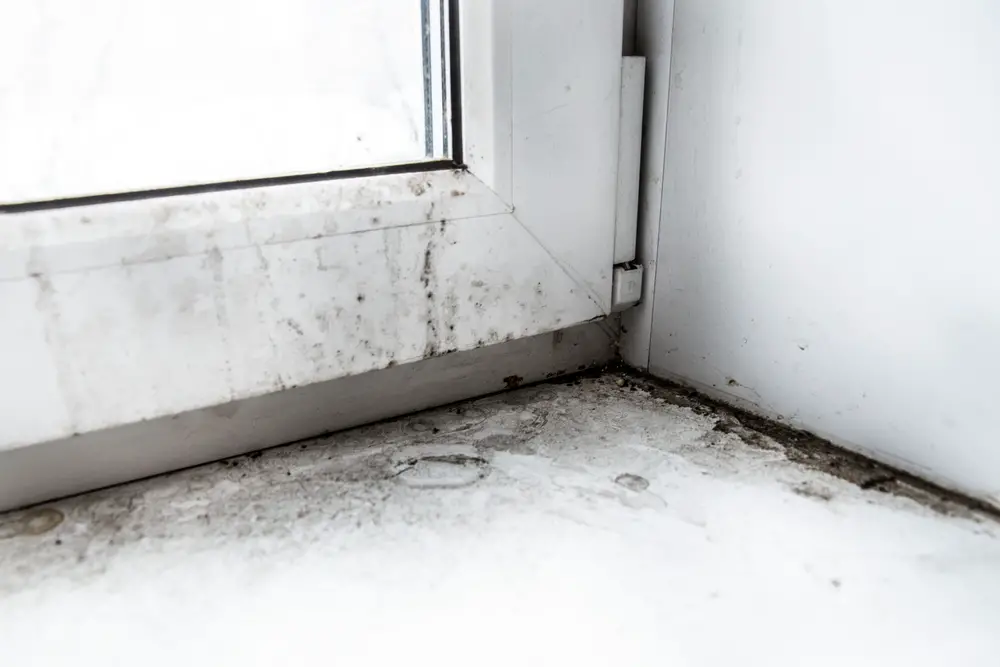
Is Black Mold in An Apartment Illegal?
Because it’s considered a health hazard, the presence of black mold is an issue that needs to be dealt with immediately. While the mold itself isn’t illegal, however, your landlord has the responsibility to provide a safe environment for their tenants to live in. It is also their responsibility to ensure that the property is free from mold. So, if the landlord knows that a property has black mold, or develops black mold, then it’s their responsibility to deal with the issue. It is also illegal for them to rent out the property if they know it has mold, simply because they know that the space is inhabitable.
If you do however own your own apartment, then as the owner, you’re directly responsible for the building that you live in, and it’s up to you to deal with the mold.
The mold itself isn’t illegal, and neither is its presence in your apartment providing that you are the only person at risk from it and have willingly and knowingly accepted the possible consequences of the mold’s presence.
Can I Call The Health Department On My Landlord For Mold?
Yes, you can but you should only do so if you have already informed your landlord about the problem and they have ignored your concerns and have repeatedly failed to address or deal with the issue.
It is a landlord’s responsibility to ensure that the living space that they provide for their renters and tenants is safe and will not endanger their health or the quality of their life in any way. If your landlord has failed to have the mold removed, and you weren’t responsible for creating the problem, you can call the health department and ask them to intervene on your behalf and attempt to get your landlord to remove the black mold from the property that you’re renting from them.
Is It Illegal To Rent A House With Black Mold?
It isn’t illegal for you to rent the property from a landlord if you know that black mold is present in said property and you have knowingly accepted the consequences of your actions, but it is illegal for a landlord to rent a house or property to you if they know that mold is present. It is a landlord’s legal duty to ensure that any property that they rent out will not endanger the health of their tenants.
Since black mold is considered a toxic health hazard, it is illegal for a landlord to rent that property to a tenant if they know mold is present and haven’t removed it from the property.
Can I Break My Lease Due To Black Mold?
That’s entirely dependent on whether or not you were responsible for the presence of the mold. If you caused the infestation, then legally you’re not allowed to break your lease and are financially and legally responsible for the treatment of the mold. However, if you weren’t responsible, that’s an entirely different story. If you’ve informed your landlord about the mold, and they have repeatedly refused to deal with the problem, then you can, providing that you prove that you have reported the problem to them and they have failed to fix it, legally withhold any rent due until they do or terminate your lease.
But before doing so, you have to give your landlord an opportunity to deal with, and remove the mold and take adequate measures to prevent it from recurring.
Does A Landlord Have To Fix Mold?
Providing that you were in no way responsible for the mold being present in the property, then legally it is your landlord’s responsibility to ensure that the mold is removed from your property and that the issues that caused the problem are dealt with so that it doesn’t reoccur. Obviously, sometimes it’s difficult to pinpoint the exact reason for mold forming and developing in a property, but as long as the mold is present, it is your landlord’s responsibility to remove and fix the problem.
How Long Does A Landlord Have To Remove Mold?
The length of time that a landlord has to address the issue is governed by individual state laws and guidelines concerning building health and the responsibility of a landlord to their tenants.
There are no federal laws governing the legal amount of time that a landlord is allowed in order to address a mold problem. If you are concerned about the time period in which the issue should be addressed, you should direct any concerns that you may have to your state departments of environmental and public health and they’ll be able to guide you through local laws and help you to address the time problem with your landlord.
Both are also excellent resources of information and can help you to determine the legal position and responsibility that your landlord has to you in any and all health matters.
Is It Illegal For A Landlord To Paint Over Mold
Painting over mold won’t deal with the problem, or remove the cause of the mold infestation, and by simply painting over the mold, your landlord won’t be fulfilling their legal responsibility to ensure that the property that you are living in won’t endanger your health. As your landlord is legally responsible, providing that you were in no way to blame for the mold, for dealing with, removing, and ensuring that the mold won’t become a reoccurring issue, then painting over the mold leaves them in a very questionable legal position, and you are within your righteous as a tenant to insist that they have the mold removed properly.
Conclusion
We hope that this has helped you with your questions regarding the presence of Black Mold and the legalities behind it.

